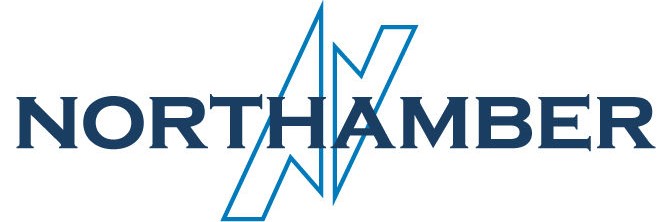What does the 19th July mean for your business?

Sarah Lee, Partner in the BPE Employment team, discusses the impact that restrictions being lifted on 19th July will have on businesses.
On 19 July, we move into the final stage of the Government’s roadmap out of COVID-19. This will signal the end of social distancing rules, mask-wearing, guidance on working from home and legal requirements on how businesses operate. We will instead be encouraged to personally manage COVID-19 risks as we learn to live with the virus.
Will we see a mass return to the workplace and to pre-Covid ways of working? How will employers successfully manage the return to work of a disparate workforce?
This article explores key questions for employers as they navigate back into the workplace. Next month’s article will focus on managing the ongoing challenges posed by COVID and the shift to hybrid working.
- Can you force a return to the workplace?
Where a worker’s contractual place of work is the office (rather than home), you can require them to return to the workplace after 19 July, subject to caveats including:
- consulting with staff, to allow concerns to be addressed;
- considering exceptional cases (e.g. if someone is extremely clinically vulnerable);
- giving reasonable notice of the change (to allow staff time to make logistical arrangements); and
- considering any statutory flexible working requests (e.g. to continue working from home) reasonably and within prescribed timescales and parameters.
- What if staff refuse?
If you reasonably instruct staff to return to the workplace and they refuse, this may constitute misconduct. However, check their reason(s) for refusing before considering a disciplinary process, as these may be reasonable (e.g. having a vulnerable family member or commuting on public transport) and you may be able to mutually agree a way forward.
If a staff-member refuses to attend work for health and safety reasons, seek advice to avoid the risk of potential claims including:
- health and safety / whistleblowing detriment claims;
- automatic unfair dismissal (based on health and safety / whistleblowing);
- constructive dismissal; and
- disability discrimination.
- Who should return to work?
Although the lifting of restrictions should allow businesses to reopen and staff to be taken off furlough, many employers will continue controlling numbers in the workplace due to rising infections, e.g. via phased returns.
If you adopt a phased return, consider how to decide who returns when. Options include identifying a core group of employees, requesting volunteers, applying fair and objective selection criteria (with a clear paper trail) or picking names out of a hat!
Clinically extremely vulnerable people may return to work, as they are now advised to follow the same guidance as everyone else. However, consult with them to address any concerns and consider potential adjustments.
- How do you ensure a safe return?
The Government lifting of COVID-secure requirements on businesses and encouraging personal responsibility will not absolve employers from their legal health and safety obligations.
Ensure that you:
- Carry out health and safety risk assessments (including the risk of COVID-19), take reasonable steps to mitigate identified risks and share them with staff. Pay particular attention to staff who are clinically vulnerable and/or have protected characteristics.
- Follow the Government’s Working Safely guidance (to be updated to provide examples of sensible precautions that employers can take to reduce risk).
- Follow HSE guidance (to be reviewed on 19 July).
Continue to take reasonable precautions to make the workplace as safe as possible, including regular cleaning, encouraging personal hygiene and improving ventilation. Many employers are also still “encouraging” social distancing to mitigate infection risks as far as possible.
- To mask or not to mask?
On 19 July, the legal obligation to wear masks will be lifted and this will become a matter of "personal choice". Pending Government guidance on when people should “choose” to wear masks, businesses must consider their own stance on requesting ongoing mask-wearing of masks, based on:
- their specific circumstances (e.g. if a workplace is crowded and/or involves staff having contact with “new” people, requesting continued mask-wearing should be reasonable);
- risk assessments; and
- the views of staff and third parties.
Consult with staff regarding continued mask-wearing:
- If you will request this, explain why, consider those who were previously exempt and address any concerns raised.
- If not, support those who wish to continue mask-wearing and ensure that staff respect their colleagues’ personal choice.
- Consider issuing a policy or guidance on mask-wearing, to avoid confusion.
- How do you ensure a smooth transition?
The last 16 months may have adversely affected your staff’s physical and/or mental health and returning to the workplace will be a huge shift, especially those who have been furloughed. It is, therefore, vital to communicate with staff to ensure they feel safe and comfortable returning to work.
Whilst staff surveys can assist in gauging how staff are feeling, it is important to engage with everyone individually via a “return to work” process. This should include a meeting (physical or remote) to:
- communicate changes across the business or individually;
- ask regarding their well-being, work-related concerns and any support required; and
- remind them of internal and external support available.
Consider offering a phased return to the workplace to allow time to re-adjust to daily routines, commuting, sitting in a busy office, having physical contact with colleagues and clients and rediscovering a work-life balance.
Consider ways to reintegrate furloughed and non-furloughed staff and workplace-based and home-based staff, as divisions may have arisen over the last 16 months.
For advice and support for your business as more employees return to the workplace, contact Sarah Lee at [email protected] or call 01242 248261 or another member of the BPE Employment team.
Twitter @BPE_Solicitors
LinkedIn: BPE Solicitors LLP











